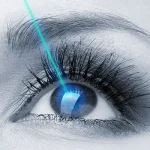Home ⟩ retinal-tear-treatment
Do you know how complex the structure of the eye is? Multiple small yet very important parts come together to form the whole eye and function in tandem to ensure good vision. The retina is one of these parts and
Before we dwell on what a retinal tear implant is, let’s have a basic understanding of the retina. To put it simply, the retina is a thin layer composed of tissue that lines the back of the eye on the
Find a doctor tool assists you in
choosing from our diverse pool of health specialists. Discover better health & wellness by using our doctor ratings & reviews to make your choice
Find an eye specialist
From locating one of our centres across India to booking an appointment, we are just a click away!
Locate a Centre
The SMILE laser eye surgery is a short form for Small Incision Lenticular Extraction. It is a highly advanced technology.
See Our All Specialities
Centre For Sight . 2024
